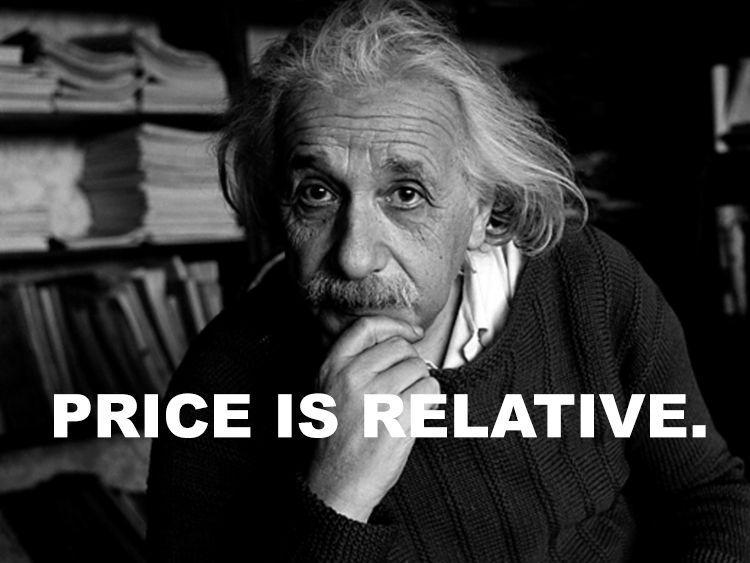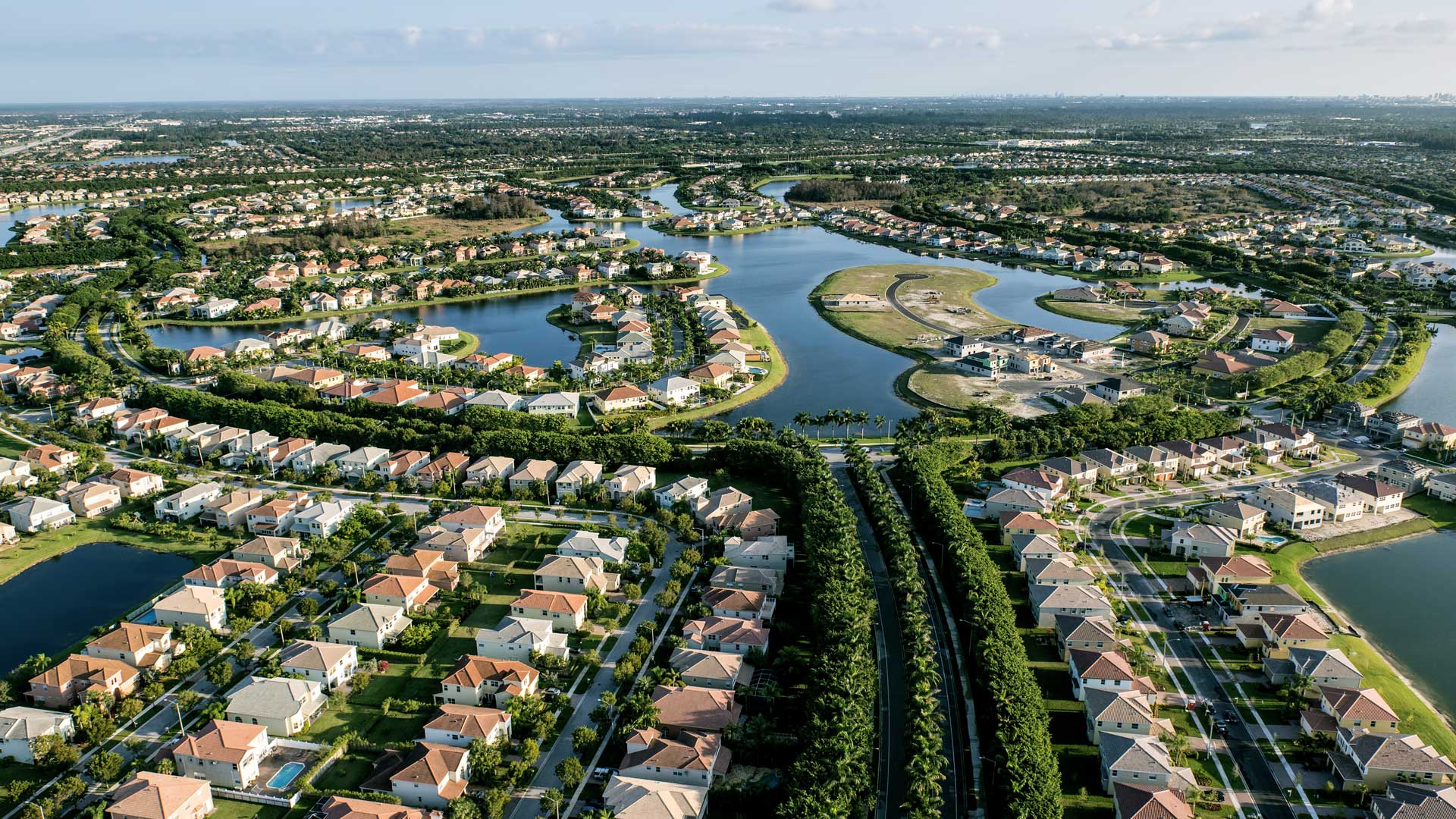Over the past year, this ROK writer has taken a leave of absence to pursue his local real estate market in Ontario, Canada. Starting out in November 2017, I have managed to achieve very good educational, interpersonal, and (some) financial growth after beginning as a complete greenhorn.
Pursuing real estate offered me a big bay-window view into the essence of free markets and individuals. Prior, I may have understood these concepts in theory from books and websites, but did not fully appreciate them until experiencing their mechanics at work, affecting and influencing my well-being in real-time.
Understanding these maxims and learning how to apply yourself will help you thrive in the business. Like any ecosystem, you must adapt to survive. If one is new or continues to engage in real estate or another highly oversaturated part of the private sector, here are eight maxims one should grasp in order to outlast the competition.
1. Everything Is Negotiable

Bacon is for winners.
Yes, everything. A colleague of mine had his offer accepted on a property because he threw in a pound of bacon with the purchase agreement. My partner and I got our price by allowing the seller to take their water softener with them (barely a concession). When everything is negotiable, get what you want and give up what makes the other side happy if you don’t care about it.
Like Trump did in real estate and does in politics now, you should start out every deal by making extreme demands that favour your side, then—if you have to—walk it back closer to the middle (but where you still come out winning).
If you want something, ask for it and only consider relinquishing if the buyer or seller objects. If you have to drop a condition, do it if it will not hurt your deal, but ALWAYS counter with your own condition.
For example, you present an offer to a seller. They agree on the price, but don’t want you to inspect the property or make it conditional on inspection. But it’s an old house, you think the septic is bad, so you reply: “Fine, I will remove the inspection condition from our agreement. However, we will still conduct an inspection within 5 business days at our own expense. If that septic tank ends up needing to be replaced, up to 20 thousand dollars will be deducted from the purchase price.” Here, the seller gets their firm offer but you also get your inspection and the right to adjust the price if the septic is gone.
When everything is negotiable, there’s no sense being soft in your approach. Trust me, the other side will appreciate your strength and willingness to give and take.
2. People Aren’t “Greedy”, They Just Need Incentives

Ninety-nine percent of the real estate investors, agents, and entrepreneurs I’ve encountered are not greedy profiteers in it for zero-sum gain. They cannot afford to be as reputation is crucial in the biz. If one is regarded as a scammer by the local real estate community, they will lose out on lucrative partnerships and deals.
The threat of reputation destruction helps regulate greed or misbehaviour. While self-aggrandizement is rampant among them, real estate types do not want to screw each other over. Simply, they need incentives to work with and help you. Altruism in a vacuum doesn’t exist. Even people who say, “I’m happy to help” without pushing for compensation will eventually walk if you do not deliver the goods.
Every deal must be a win-win and structured in proportionate to each party’s value and output. There is no free advice or favours; you have to know your value and bring it immediately to the table. If you’re new, admit it upfront and pay that mentor for their time or partner with a pro and offer them a disproportionately larger profit share (like 70-30, or even 100-0!).
Real estate entrepreneurs are not given benefits, a steady salary, or a cushy pension. They are independent wealth creators and thus need an incentive to participate and produce that wealth. That doesn’t make them greedy jerks, just individuals requiring the necessary motivation to offer value to benefit themselves and others.
3. Everyone Is Inherently Selfish

Everyone, at the end of the day, is in it for themselves.
This point may seem contradictory to #2, but it isn’t. Let me explain. When you invest yourself in real estate, you start to tune into everyone’s ulterior motives. The more you commit yourself to the free market, your brain evolves and develops an ability to read people’s minds and motivations because you need that information to appeal to them.
Here, you realize that everyone has deep-seated ulterior motives. They have dreams, expectations, goals, and personal/familial needs that precede the interests of anyone else. You witness The Selfish Gene quite vividly through real estate as everyone is vying—and cooperating—for greater success and power.
This type of “selfishness” is completely natural (selection). That fact is not an argument against capitalism and the free market, but rather for it. People are so hungry to be “selected” that we need capitalism to regulate those selfish instincts and provide an outlet that allows people to express those instincts so long as they create surplus value in society.
Socialism, on the other hand, denies this fundamental reality and pretends we are all inherently selfless. In the end the socialist’s paradise becomes unequal, immoral, and murderous. Free markets are the opposite: cynical, tough, but fair.
4. It’s A Relationship Business

In business, people need to trust you.
Paradoxical, isn’t it? Humans are inherently selfish, laden with ulterior motives, they need incentives to work for you… but real estate is a relationship business. The beautiful thing about free markets is selfish people have to add value not only to themselves but others. You have to build genuine relationships to do this. You cannot win on a lonesome crusade. Connections build the networks to success.
In real estate, people seek out relationships that service their goals and needs. In turn, they must reciprocate by servicing other’s goals and needs. As soon as a relationship becomes one-sided, it falls apart. You need solid two-way relationships to gain access to great deals and business partners.
Beyond the quid pro quo, people also must trust you. If colleagues believe you are only about money, your growth in the business will reach an alarming standstill because no one will see a future working with you. In that case, that’s the free market punishing you for not playing its game. Once again: it’s tough, but fair.
5. Price Is Relative and Not Always Most Important

Unlike gender, price is relative and whatever we agree it to be. There’s a certain limit to that claim—for instance, a fully renovated estate home is objectively more valuable than a dilapidated fixer upper (though the exact price would vary greatly in different markets).
Oftentimes, “fair market value” price is determined after several volleys of counteroffers, power plays, and knowledge drops. When buyer and seller agree on price, market value emerges—but it’s ever-changing.
Price is a state of mind. It’s an attitude, a feeling. And a higher price doesn’t always mean more to a seller. Admittedly, I have at times capitulated to sellers and offered more money on their house, only for them to reject the higher offer. They rejected it because they sensed weakness.
My weakness changed the market value of that house. Sellers who start with a firm price often drop five figures by signing. On the other hand, sellers who seem “negotiable” from the outset will back out on a deal even when they get a great price.
Price only truly matters when a seller faces foreclosure or a certain defined amount of debt that locks their price in place. Generally though, price is secondary and you win by (a) solving the seller’s problems (e.g. closing fast and buying their junker as-is) or (b) holding your ground against a seller who threatens to walk away, jerk you around, or raise their price.
Price is often about knowledge and power. Which leads to #6…
6. Knowledge Is Power, Always

Whoever knows the most wins.
At many points in real estate, you will encounter things you don’t know. It is your duty to learn them after to patch up that area of ignorance in your brain. In a voluntary business transaction, it’s up to you to tip the scales in your favour.
You cannot force someone to accept your price; you have to convince them. You do this through knowledge gathering (or what is referred to as “due diligence”). When you research the market, know what adds value to a home and how much a repair costs. You will gain a dramatic upper hand at the negotiating table.
Say you’re trying to buy a home that is located close to the water. You do your research and find out the home is on the floodplain. Hmm. You go to the house and ask the owner if the basement is waterproofed and if the downspout’s leader pipe discharges at an acceptable distance from the foundation. No, it doesn’t.
The foundation is concrete block, the seller mentions. You reply that poured concrete is more durable and easier to waterproof. Also, unlike the comparables, this home’s basement doesn’t have a separate entrance, you add. You’ll have to cut one in, add drywall, and make sure it’s up to code. The seller nods.
Some of these are fairly standard and inexpensive problems, but the more knowledge you have the more you can handle objections and leverage deals in your favour. The free market rewards those who are the best equipped—so why not play by the rules and get equipped?
7. The Pareto Principle Is Real!

Bernie Sanders be damned!
In real estate, the majority of brokers make very little commission and a tiny minority of well-connected, knowledgeable, and go-getting ones reap the harvest. That is not because real estate is mean or unfair, but because it rewards the fittest.
Most of the agents I’ve encountered are all talk. Incompetent, lazy, and terrible at negotiating. That’s not to impugn the job of realtors. There are fantastic brokers out there, and the 1% of realtors that have the most skills bring in most of the clients and sales commission.
Similarly, most investors will start off, fail, make excuses, and just quit. The reality is many people go into real estate, but few are actually successful. That’s no systemic imbalance; regardless of race and gender, most novices don’t have the persistence, resilience, or IQ to tackle real estate in the long-term.
That’s a good thing, if you’re a winner. That means less competition for you and still plenty of properties to buy and sell.
8. Abundance Mentality Matters

In real estate, volume is essential.
Like in game, abundance mentality is king. In real estate and the free market in general, you need systems and people that produce volume for your business. If you do not have multiple opportunities, others will sense your singleminded desperation in their deal. When they do, you’re burnt toast.
Whoever is genuinely able to say “no” and walk away in a deal wins every time. When you don’t care about a deal working out because you have too many on the go, it is an aphrodisiac for the people on the other side of the negotiating table. They will often chase you down and give a better price without you even asking.
In the past, my partner and I have encountered screaming deals, gotten emotional over the potential profits, and ultimately lost out in the end. Didn’t matter the seller’s situation; they sensed our neediness. When big money is involved, you can easily get too attached.
To compensate for that, we created a lead-generating system in real estate that, at this point, brings in enough volume that we don’t have to fake that calm and collected mindset. It just is with us.
Once you have gained an abundance mentality in real estate, even if your net worth has not moved yet, you will have already won.
Read Next: Why All Men Should Invest In Real Estate
I just personally loathe how residential real estate (let me make clear I am differentiating residential from commercial property) has become so friggin expensive since it started to be treated as an asset class in the 1980s and gone on overdrive in the 21st century. To be constantly flipped like stocks.
The boomer types have pretty much priced out their own older Millennial children from ever being able to own their own house and raise a family in it (the cornerstone reason why a detached home property is supposed to exist in the first place) because they expect never-ending property value increases and get all into speculative buying and rent out properties at such high rents the younger generation can’t save anything substantial for their own deposit (JUST the deposit).
The only way so many younger adults will ever have their own home is when their comparatively wealthy parents finally roll over and croak and collect a substantial inheritance. Problem is, by the actuary tables they will probably be well over 40 by the time that happens and it’s getting too late to start a family.
My boomer parents held it and donated 3 million in apartments to me.
You can rent it from me if you suck my BBC every night (big brown …)
Don’t get mad, get working!
On the real though, you are right.
Basically if I was a millineal with no inheritance, I would be a digital nomad- set up some Internet business and travel the world, live on less.
There is nothing for young western men (especially white men) in America, especially if they don’t have a lot of $
That’s such a vague thing to say though….”set up some internet business”, as if it is an easy thing to just do and have the money raking in. What kind of internet business though??
Scams are moneymakers these days, and they pay well and like everything else in the Western culture, disposable one time use as we no longer have a justice system that works either. Corruption is the most successful best working business model right now in the USA. Look at the success of Amazon and Facefu*kbook. They scammed billions from customers and the Federal Govt to subsidize their intel gathering methods.
Millennial are our largest customer base in Toronto. They are in their mid to late 30s, recently married, proud to be feminists and they don’t promote ideas which get them into trouble with law enforcement and border patrol like our idiotic pick up artist here.
It’s not anyone’s fault that you can’t find a job because you support a child molester and r a p e advocate.
Great troll comment Gregory. And nice strawman on the “can’t get a job” comment. When did I ever say I didn’t have one? (I do)
http://www.condoroyalty.com/luxury-condos-toronto
Don’t get angry because you’re a bum. I’m a managing partner of Condo Royalty and feel free to send your resume to work as mmmmmm…..janitor or security guard? Toronto is a world class city and you can lick my ass crack you useless supporter of a r a p i s t.
You don’t get women in Toronto because you’re a misognyist and women here can smell that miles away. Toronto is a city of class, respect for women and human rights.
Gregory is a Toronto beta incel with too much frustrated sexual energy
SO that’s what they call that free loading millennial occupied cess pit of a black hole that is sucking so much money and economies. Who knew?
Boomer here, I don’t own any property, anywhere in the world. Can’t even afford to rent a bedsit in my hometown. So I have to live in Asia and spend all my money on banging young women. I really wish I were you with lots of property and no pussy.
Some of us don’t want to bang flat faced Asian monkeys all day
When did you last shag anyone?
About a month ago
got a bj and my anus eaten on Saturday.
Admittedly, Asian apes both time 😀
I feel bad for the above post.
The woman I saw last week is a sweet lady that I’ve seen a few times and doesn’t deserve to be called an ape/monkey
I take back both comments saying ape/monkey
If I could delete the above posts, I would
I apologize to her and everyone
Especially every Asian
Real estate for investment purposes beyond small gains that barely beat inflation is inherently immoral, however we’re living in times where immoral behavior is not only encouraged but becomes almost necessary to get anywhere in organized society.
Now I’m not saying in the all white past everything was all fine and dandy and there were no profiteers and bad behavior, however real estate was never treated as a slum lording vehicle to squeeze the life out of the masses.
Germany before the engineered housing crisis as well as Japan up until now are what I see as a moral regulatory approach towards housing which is generally affordable to anyone and not built for extreme profiteering bordering enslavement (there is no major city left in Europe with lots of employment options where one can escape the permanent roommate situation below a top 20% income).
Who said it was anybody’s right to own a house. Does free market capitalism stop at residential real estate. Stop whining and start winning or join your buddy barry obama at acorn.
In a society where nobody wants to get together and fight for what is right 80%+ of guys will lose out. We’re at a time where you may or may not come out ahead with being entirely self interested but that window is quickly closing.
Soon we’re living in dystopian times where everybody is a serf and fighting each other for scraps.
I wouldn’t own any real estate unless I had a minimum of 50K to put into upkeep and needy repairs. Even if you can put a new roof on, windows, septic tank, flooring, appliances, you still have to purchase the materials and transport them. Most people do not have handyman skills like it was in the early 1980’s.
Boomers had the know how, the pay raises, and skills to own and maintain real estate. We lose something every generation…The WW2 generation knew how to farm but most Boomers don’t have a clue and/or were not interested in farming. Today, most people born after 1975 have no skills other then tech, computer geek stuff. Its actually very sad, if you think about it! It helps to have a strong father figure and not let women take the kids away! The Boomers had a very high divorce rate!
Tomorrow, (10-20 years from now) most expensive real estate in the US will be owned by Arabs, Russians, Brazilians because they’re big into business and making money. Their heads are thicker and wider, showing off their machismo and the testosterone lacking in so many Anglo Saxon and even Italian men today!
Food and shelter are basic human necessities. It’s an embarrassment that with the today’s level of development people still have to pay such high prices for a place to live.
Real estate speculations have always been the favorite activity of the jews. Now everyone wants to be a (((parasite)))!
So many lost people this days, not having a clue of what actually matters in life. Speculations, money, many sex partners, comfort, gadgets, travel it’s all they can think of. The white race has never ever been so low in spirit as it is now.
Good article.
I currently own $1.5 million in paid off apartments, that net me $60k a year in passive income
In 4-5 years, I will pay off my other apartments (also worth around $1.2-1.5 mill) that will deliver me $60k from then on.
I have 800k in capital that I will invest in development.
I am willing to borrow
From they 800k capital and the passive income, I want to have $5 million in gross profit in a decades time.
Do you have any suggestions how I should do that?
You’re right about price being relative. Right now in my city in Australia the market is pretty stagnant. I’d be better off waiting till it dips even more, developing something and holding it for a year or two.
60k Australian dollars in Australia has about the same purchasing power as 25k US dollars in the US, so that’s actually not nearly as impressive.
You just live in an over the top expensive country. Also your apartments are not “worth” 1.2-1.5 million as you say, the Australian property market has just been so overheated with Chinese buyers in Sydney and Melbourne much like they have priced out the white locals in Vancouver, Canada.
Automation is going to do a terrible number on the Australian labor market which demands some of the most premium wages in the entire world.
60k in Aus=43k American dollars. I get that I passive income statement year
-I’m not looking to purchase outside of Australia so I don’t care. I’m just looking to have passive income of about $200,000 a year in about 15 years.
I want to make a few million in the next 10 years from development, and then acquire more blocks of apartments that pay me an additional 100k in passive income a year.
A legitimate question is how expensive will a block of 5 crummy units be in 10 years time.
What do you think will happen to prices in the coming years?
Already there is a stagnation in Melbourne and I think Sydney too. Rural areas of Queensland are going up
I’m looking at more remote areas outside of Melbourne for developement
First line I meant to say “I get that in passive income every year”
Yeah with the current exchange rate it’s about 43k a year US but your purchasing power is still horrendous in Australia.
Groceries in your country (one of the most common purchases people make) is ridiculously overpriced because your nation has a duopoly between Woolworths and Coles, and even the ALDI stores in Australia are much more expensive than their US counterparts.
Many of the other simple pleasures in life, like beer and wine, are many multiples more expensive in Australia compared to the US. Parking decks for a few hours in the city centers cost as much as cheap hotels in the US.
It’s $16 (like $12 US) to get a damn bus between Melbourne CBD and the airport and ditto between the Sydney airport to circular Quay on the train. A number of US cities connect their airports to downtown for like $2.50 by comparison.
Your country is a living rip-off (kinda like Ireland), and I wouldn’t live in that foul-mouthed and feminist/Marxist country of yours for any longer than necessary. The “no worries” Australia of yore is long gone.
You’re right that Australia is a rip off.
Melbourne and Sydney are the worst.
I need to get as much $ out of the shithole as possible and then leave In 10 years when I’m 40
Why not sell your properties for a few million NOW and retire at 30?
Just the compound interest from a high yield mutual fund with 1 million in it will allow a comfortable lifestyle in southeast Asia, eastern Europe, or parts of Latin America TODAY junior.
I mean what, do you want to go hang-gliding, jet-skiing, or RPG grenade cows in Cambodia every single day?
@Reality
1)my parents are still alive and it would break my Mum’s heart if that’s all I did with the $
2) I grew up rich and had a problem of spending a lot. I would he worried about literally blowing all that $ by 40 and then having no back up. So I prefer to have rental properties and have $200k drip out
3) I want a sense of accomplishment. I want to do something with that $, and also make 50k a year from writing.
Toronto is the greatest for real estate investment. Me and a RoK forum member made millions in flipping condos at Front St and the Distillery district, and Toronto is a world class city with tons of beautiful women. Why settle for disease-ridden Montreal thots? Too many Haitian whores in Montreal and their prostitution side job lowers property values.
Toronto is a great city. If you can’t make it in Toronto kindly k&ll yourself.
Assuming this is not a troll,
When you flipped the condos, did you do the renovation work yourself, or hire handymen to do it for you?
What was the price range you were paying for the condos initially?
Why the fuck would I reno a condo that was just built? Toronto is a GROWING CITY and condos are in demand. Condos are under construction EVERYWHERE in the GTA.
http://theossington.ca/the-ossington/the-culture/
I’ve invested 4.5 Million Canuck beaver pellets on this baby. I will make 100%-165% on my investment in this project. Too bad that r a p i s t s like Rxxsh is a homeless bum and can’t find a woman in our city that he had to molest a )ewish girl at Bathurst and Finch Ave West while he was in Canada.
Regarding The Ossington.
Wow, nice
How did you get the money? Did you borrow?
How long are you planning to hold those units for to get that return
Oh so you developed and sold condos from the ground up? Nice
Toronto is a GREAT CITY for real estate, work-life balance and dating in a world class city and ranked #1 as the best city in the world by MacLeans and the Economist. Toronto is a growing city and it’s the greatest city in North America.
Real estate as an investment is usually hard work. I started in Austin, Texas in 1986 buying and rehabbing rental properties like houses and duplex properties and by 1996 I owned 55 properties in Austin, Texas. I had my own sub-contractors that worked for me and I had a vast knowledge of the residential home building process. To build this many properties wore me out. Dealing with all these tenants wore me out…in this business you see how messed up people and the lives really are. I sold a lot of them off by 2010, and today I still own 8 properties. I have the profit in other real estate investments that do not require me to do all the management. Real estate is a good investment, but be prepared to work your azz off with no vacations if you want to make it successful. I leave out any dollar values and equity I built up because the only person that should care about that is me. I remain humble thru it all, but I am telling you that you will have to work your azz off to get real estate success.
Keith, as a fellow real estate investor I agree — investing in real estate is hard work. Like you I’ve been doing this work for more then 20 years.
To the author one thing I want to note is that all the money I’ve ever made in real estate is when I bought the property. If you don’t pay the proper price at purchase your odds of success go down markedly. Being disciplined about what you’re willing to pay at the time of purchase combined with hard work improves one’s odds of success dramatically.
tldr; be a joo
Is Donald Trump motivated by a deep-seated jealousy of my extensive collection of Transformers figurines?
8 ways to understand the mentality of a thief.
Well, I see clearly now the error of my ways. I never should have invested in Gun Oil ™ astroglide and a high speed internet connection for porn after I left the military..Who knew? Guess I better sell the fleshlight before it wears out too….Oh damn.
I hate womyn from Toronto. They are feminist scum.